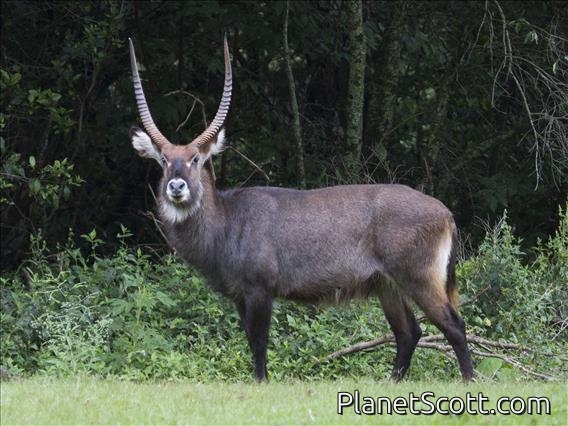Waterbuck (Kobus ellipsiprymnus)

Waterbuck (Kobus ellipsiprymnus) - Male
×


Waterbuck (Kobus ellipsiprymnus) - Male
About Waterbuck (Kobus ellipsiprymnus)
- Kingdom: Animals
- Phylum: Chordates
- Class: Mammals
- Order: Even-toed Ungalates and Cetacean
- Family: Bovids
The waterbuck is a large antelope found widely in sub-Saharan Africa. It is in the genus Kobus of the family Bovidae. It was first described by Irish naturalist William Ogilby in 1833. Its 13 subspecies are grouped under two varieties: the common or ellipsiprymnus waterbuck and the defassa waterbuck. Their coat colour varies from brown to grey. The long, spiral horns, present only on males, curve backward, then forward, and are 55–99 cm (22–39 in) long.
Source: Wikipedia
Visits
-
×
-
×
-
2002-12-08
Moremi Game Reserve, Botswana× -
2013-10-24
Nairobi National Park, Kenya× -
2013-10-25
Lake Nakuru National Park, Kenya× -
2013-10-28
Mount Elgon National Park, Kenya× -
2017-01-01
Lake Mburo National Park, Uganda× -
2017-01-08
Queen Elizabeth II National Park, Uganda× -
2017-01-09
Queen Elizabeth II National Park, Uganda× -
2025-01-28
Arusha National Park, Tanzania×








